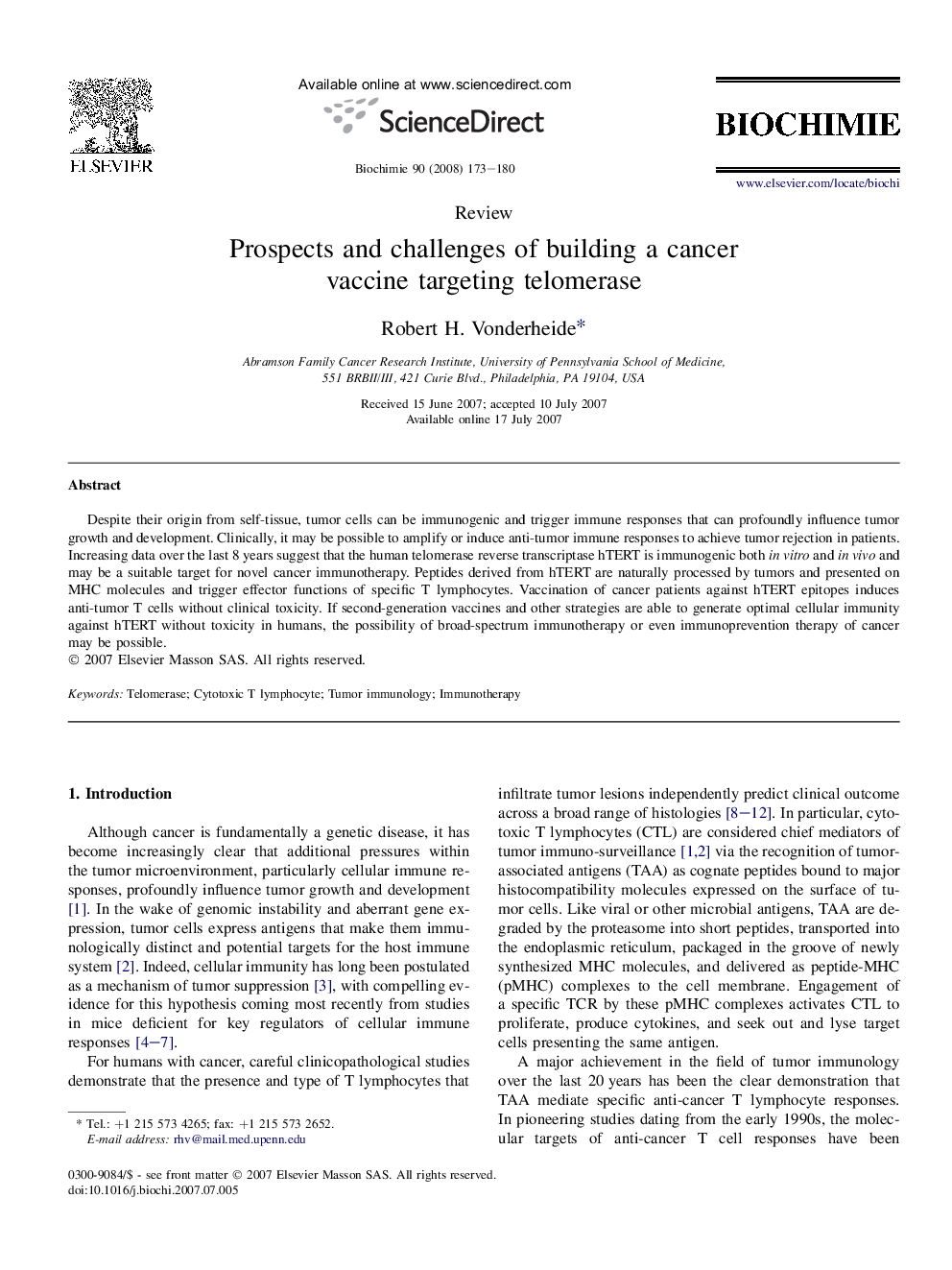| Article ID | Journal | Published Year | Pages | File Type |
|---|---|---|---|---|
| 1952988 | Biochimie | 2008 | 8 Pages |
Despite their origin from self-tissue, tumor cells can be immunogenic and trigger immune responses that can profoundly influence tumor growth and development. Clinically, it may be possible to amplify or induce anti-tumor immune responses to achieve tumor rejection in patients. Increasing data over the last 8 years suggest that the human telomerase reverse transcriptase hTERT is immunogenic both in vitro and in vivo and may be a suitable target for novel cancer immunotherapy. Peptides derived from hTERT are naturally processed by tumors and presented on MHC molecules and trigger effector functions of specific T lymphocytes. Vaccination of cancer patients against hTERT epitopes induces anti-tumor T cells without clinical toxicity. If second-generation vaccines and other strategies are able to generate optimal cellular immunity against hTERT without toxicity in humans, the possibility of broad-spectrum immunotherapy or even immunoprevention therapy of cancer may be possible.
